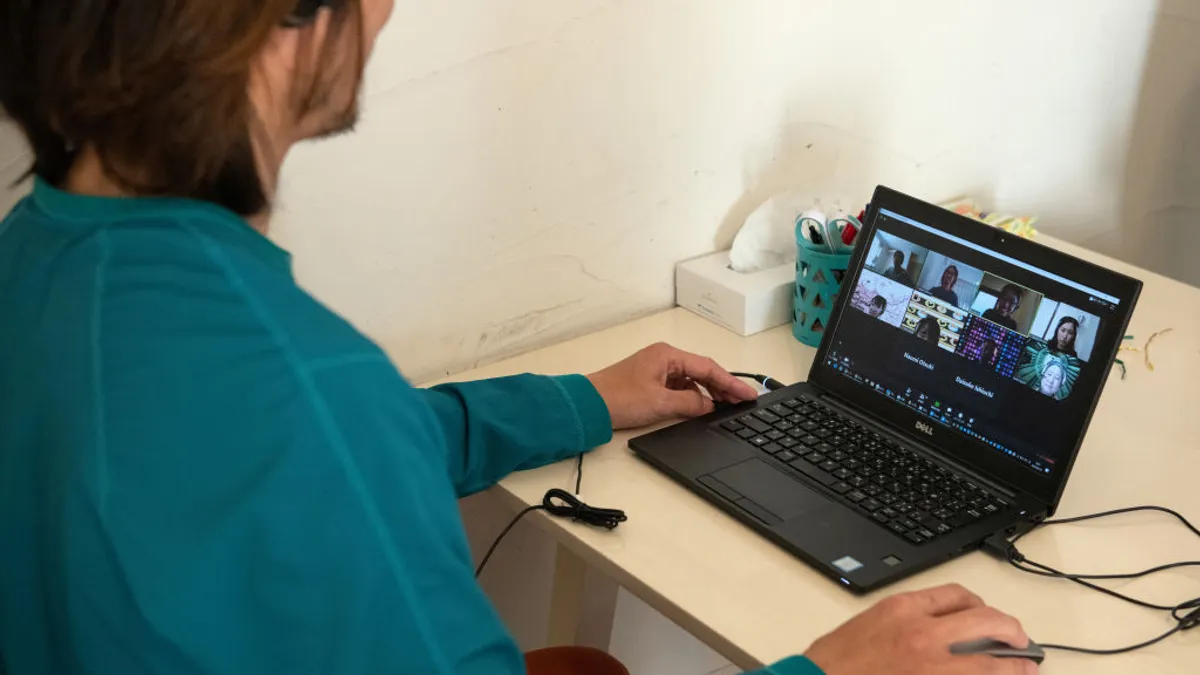Dive Brief:
- The pandemic and its aftermath may have led to a "resurgence" in the level of empathy workers perceived in their employers and CEOs, according to a recent study by benefits technology firm Businessolver.
- The company's analysis of organizational and CEO empathy ratings, provided by employees, found 72% of employees rated their organizations as empathetic, while 72% said the same about CEOs. These totals represented an increase of four percentage points and nine percentage points, respectively, compared to last year.
- However, Generation Z employees' empathy ratings for organizations dropped by 14 percentage points year-over-year, and such employees were also less likely than other age groups to agree that empathy stems from diverse hiring practices. "This suggests Gen Z is more focused on the consistent, systemic, and long-term actions that employers take to enhance equity and inclusion," Businsessolver said in its report.
Dive Insight:
The sight of working parents taking care of children on Zoom calls as well as general knowledge about the emotional, financial and social impacts of the COVID-19 pandemic have increased calls for empathy in the workplace.
Though the improved rankings may be taken as a positive development, "a closer look at the data reveals that the stress and isolation due to COVID-19 and national attention to racial and social justice issues in the last year exposed empathy gaps that need to be addressed to keep workplace empathy on the rise," Businessolver President and CEO Jon Shanahan said in a press release.
Early on in the pandemic, preserving jobs served as one example of showing empathy in business, according to an April 2020 Mercer report. The HR consulting firm also stated that employers might have needed to consider alternatives to cutting pay and benefits, such as conserving cash and delaying potential increases or grants.
In addition to implementing hiring policies geared toward diversity, inclusion and equity, employers also may practically work toward creating an empathetic workplace by ensuring employees can adjust their schedules to deal with issues outside of work, sources previously told HR Dive. Others have pointed to the effectiveness of empathetic statements that signal managers are aware of the problems their reports face and are available to help them.












